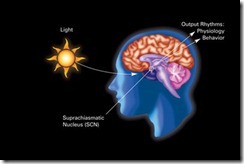 |
| My hatred of Dumb Stupid Time is rooted deeply in my brain |
-
It was forced upon the citizens of Indiana by an egomaniacal bully of a governor – Mitch Daniels. I voted the man into office the first time, and I sincerely regret it. “In his Jan. 18 State of the State Address, Gov. Daniels called the state’s “quirky treatment of time itself” a handicap to Indiana businesses.” Isn’t it far more “quirky” to think we can actually change time? Isn’t it more natural to just let time be time? He also claimed the problem was that no one knew what time it was in Indiana. I’m sorry, but if Indiana never changes, then it is constant. And if you can’t figure out a constant, I don’t think the problem is with the constant…it’s with the people who aren’t intelligent enough to figure out something that never changes. And, speaking of businesses…where are all those businesses that were supposed to flood the state because they finally understood what time it was in Indiana? This probably had more to do with lining someone’s pockets than anything else. That and making sure that everyone knew what a big, powerful man Mitch Daniels is.
-
It doesn’t save energy. I don’t know about you, but our utility bills have gotten bigger and bigger every year. We’ve lived in the same house for the last four and a half years, and there is no “energy savings” that I can see. I finally found the study that shows the move to DST actually costs the state of Indiana…more specifically the voters and taxpayers of Indiana, $9 million more! The study was done in 2008, so you know it’s costing us more than that now. Interestingly, Japan doesn’t do DST…and they’re supposed to be so much more advanced than us. Hmmm. I’d definitely say they are more intelligent.
-
Lastly, but most importantly, is that it makes me feel like crap for TWO THIRDS of the year. It’s getting worse and worse every year. I am not “adjusting” to it. Monday, the day after the dumb time change, I felt tired, crabby, dizzy and hung over all day. I stayed in my pajamas and napped whenever I could. I went to bed at what my body knew to be 9:00 pm and slept fitfully…waking at least six times throughout the night. I feel like I could bite the heads off some small, furry woodland creatures today. It’s now, according to the clock, 11:07 am. I am not any more motivated to remove myself from my pajamas today than I was yesterday. I will spend the next [244 days,12 hours, 50 minutes and 8 seconds…] still feeling tired, crabby and generally “off kilter.” Many of the people who hear me complaining about Dumb Stupid Time undoubtedly think that it’s just “all in my head”. Turns out they are right…to a degree.
Despite the fact that approximately 1.6 billion people experience DST, he [Till Roenneberg of Ludwig-Maximilian-University in Munich, Germany] continued, few studies have investigated its impact on human physiology and behavior. The results of the few, relatively small studies that have addressed the question have generally suggested that sleeping patterns adjust within days.
In a large survey, which examined the sleep patterns of 55,000 people in Central Europe, Roenneberg’s group now shows that the timing of sleep on free days follows the seasonal progression of dawn under standard time, but not under DST.
In a second study, they analyzed the timing of sleep and activity for eight weeks around each of the two DST transitions in 50 people, taking into account each individual’s natural clock preferences, or “chronotypes,” ranging from morning larks to night owls. They found that the timing of both sleep and peak activity levels readily adjust to the release from DST in autumn, but that the timing of activity does not adjust to the start of DST in spring, especially in those who like to stay up late and sleep in.
“While we generally think that the time changes enforced by the DST transitions are ‘only an hour,’ they have far more drastic effects if viewed in the context of the circadian clock’s seasonal changes,” Roenneberg said. “This seemingly small hour translates to a repeat of 10 weeks in the annual progression of the relationship between our sleep-wake cycle and dawn–four weeks in spring and six weeks in autumn. In effect, it’s as if the entire population of Germany, for example, is transported to Morocco in spring and back again in autumn.”
Indeed, “after taking the seasonal adjustment into account, our results show that the human circadian clock does not adjust to the DST transition,” Roenneberg said. “This is especially obvious in the late chronotypes in spring when one looks at their daily activity patterns. Essentially, their biological timing stays on standard, winter time, while they have to adjust their social schedules to the advanced clock time throughout the summer.”
*Reference: Kantermann et al.: “The Human Circadian Clock’s Seasonal Adjustment Is Disrupted by Daylight Saving Time.” Publishing in Current Biology 17, 1–5, November 20, 2007. DOI 10.1016/j.cub.2007.10.025
The researchers include Thomas Kantermann and MyriamJuda of Ludwig-Maximilian-University in Munich; Martha Merrow of University of Groningen in Haren; and Till Roenneberg of Ludwig-Maximilian-University in Munich.
[Source: Science Daily]

Elizabeth O. McBride says
I am so with you on this. I just don’t see the purpose of changing clocks twice/year. I didn’t realize Indiana had started doing it.